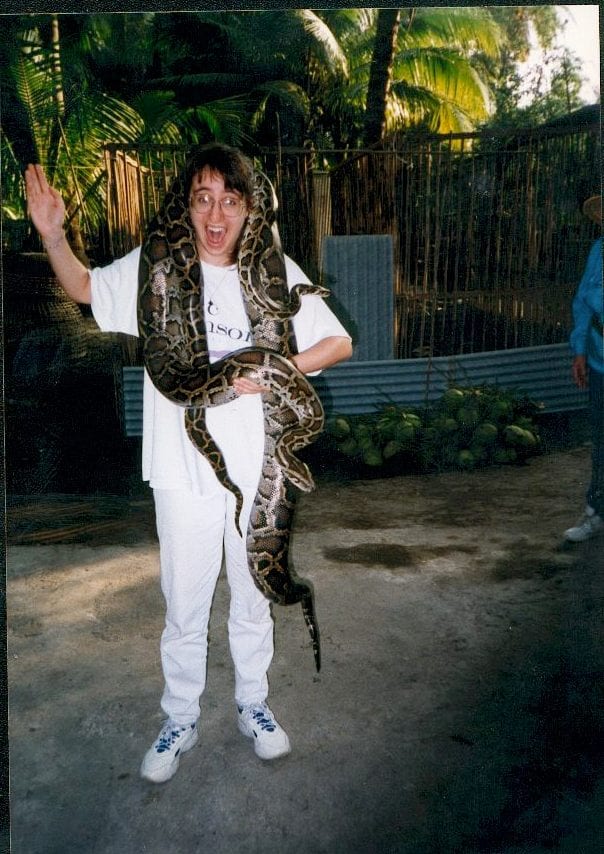As many of you know, outside of my life as a global team facilitator and coach I am an electric guitar player. I’ve played acoustic guitar off and on since high school, but about a year ago I got myself a Fender Stratocaster, a pretty loud amp, and a series of effects pedals. Yes, I went all out and never looked back.
A big part of what motivated me to go electric was the idea of playing with a full band, especially one that was interested in my favorite style of music – progressive rock. Of that musical genre, my favorite band is Rush, a three-piece out of Toronto, Canada; I’ve been lucky enough to find people to play with who love Rush’s highly complex and technical music, and who are willing to put the time into learning it.
I’ve been listening to Rush for twenty-five years. I can sing every one of their songs by heart. I can “air-guitar” every solo and “air-drum” every beat. I know the band’s history, have seen them countless times in concert, and I own every one of their albums. I can hum every bass line and bob my head along with all the odd time signatures.
But when I picked up the electric guitar for the first time, I could not automatically play Rush songs. A year later I still have to put hours and hours into mastering one of their tunes.
That fact might sound obvious to you. Of course I couldn’t magically play those complicated songs. Why? Because I needed a specific set of skills which I can only acquire through years of practice.
While this may appear simplistic, many global leaders and team members approach intercultural competence with a similar mentality. They assume that because they have worked abroad, been a part of an international team, or lived in another country they are automatically at a high level of intercultural sensitivity and agility.
Reality shows us otherwise. Travel, language fluency, and international work experience do not always predict cross-cultural intelligence. How do we know? Well, we’ve all seen examples of the executive who has worked in China for twenty years, yet knows little about the culture. More importantly, however, we can measure intercultural sensitivity with a psychometric instrument called the Intercultural Development Inventory (IDI). The tool shows you where you think you are, and where you actually are.
Most people greatly overestimate their intercultural skills. People with years of global experience, personally and professionally, often find themselves in need of intensive development.
Just like playing the guitar, intercultural competence is a learned skill. It requires training (whether that is self-directed or directed from outside), and a lot of practice. If your job depends on that skill in any way, I urge you to consider your potential areas for development. Don’t be in denial, but shine a light on an opportunity to grow and remain marketable in today’s global economy.
And while you’re at it, I highly recommend picking up the guitar! And a few Rush albums while you’re at it.
If you are interested in learning more about the IDI, click here:
https://www.highroaders.com/docs/IDI_what_you_need_to_know.pdf
or contact us at [email protected].
Photo credit: Peter Nguyen Photography







Vicki,
What a great example of why education and training are so important by using the comparison of your musical experience with cultural experience. Yes, as much as you lived in the music of Rush, it sure was an awakening to realize you didn’t have the skills to actually play their music. Applying that concept to communicating across cultures in business can make all the difference…and IDI is a great tool.
Thanks! Yes, learning Rush songs has given me a whole new perspective on what it takes to reach that level of music. It takes years. Many years. Yet we assume that our intercultural intelligence will automatically increase if we get exposure to differences. It can, but not without deliberate reflection and skill-building. I’m glad you enjoyed the post!